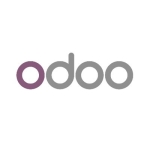What is our primary use case?
We use this solution for customer relationship management. It enables us to have a 360-degree view of all our customer interactions. We have various touch points and a call center that our customers call into. After every call, we log the interactions with the customer.
We also have customers that walk into our premises, and we attend to various requests like inquiries, requests, or complaints. After the interactions with the customer, we log the interactions. We also have email interactions with customers that are logged on the platform.
When you go to a customer's profile, you're able to see all communications with that customer based on the various touch points. Whether it's a phone call, whether they're coming into the office physically, or whether it's via emails, you're able to see all the interactions and keep a track of all events regarding that customer.
Anybody who looks at the customer profile is able to know what has transpired up until that point and proffer whatever solutions the customer requires based on their inquiries. It's been very helpful.
It's currently deployed on-prem, but we're planning to update to the cloud version.
There are about 125 people using this solution.
What is most valuable?
It's been very helpful in ensuring that we're able to provide the best of services and provide responses to whatever queries we get from all our customers. It ensures that there's continuity, and you don't have to start asking the customer about what happened. From CRM, you can easily see all the interactions and events in the record and take it from there.
We're also able to customize it for some of our core solutions. For example, we do benefit payments, so we're able to utilize the workflow part of that. We found out that when you initiate a benefits payment request, we're able to flow through the different approval stages. We're able to see and keep track of that on the system.
What needs improvement?
In terms of the performance, when it comes to loading a large volume of data, it's slow at times, so the system could be optimized. A lot of those things can be dependent on the kind of resources that you're using, but over time we've been able to scale on the resources and that has actually improved over time.
What do I think about the stability of the solution?
It's stable. It's better if you use it for the core function that it was meant for. When we used it for other processes, like our core processes, we found out that it was quite unstable. But the moment we took that process out, it became much more stable.
How are customer service and support?
Whenever we need to reach out to Microsoft, they're always there to provide required assistance.
How was the initial setup?
Setup was easy, especially when you have capable partners. The only thing is that when we use it for some of our very processor intensive processes, we found out that it couldn't handle that very effectively. We had to take that process out.
We try to maximize the functionality of the system. We have to do a lot of customizations initially for our core processes. CRM is really for managing customer interactions, so by the time you start using it for things that it's not meant for, then you won't get the best of it.
Deployment took about nine months because we used it for much more than customer relationship management. We used it for our core processes too. By bringing in those processes, they actually extended the project timeline. For the core CRM itself, implementation was done within four months.
What about the implementation team?
Our partners implemented the solution.
What's my experience with pricing, setup cost, and licensing?
The implementation depends on the number of licenses, as well as the partner who is also implementing. It also depends on the core processes you want to bring in. The cost depends on a number of factors, so whoever is implementing it will need to take that into consideration before it is done.
What other advice do I have?
I would rate this solution 8 out of 10.
I would absolutely recommend this solution to those who want to start using it. My advice is that you need to understand what the scope of the project is. What exactly do you want CRM to do? If it's for customers and to manage customer interactions, then it's going to perform excellently well.
If you're bringing in other processes into the solution outside of core CRM functionalities, then you need to ensure that the system is able to handle such processes. But when it comes to handling a large volume of data processing, there might be a drive on the system, but it handles its core functions adequately well.
Which deployment model are you using for this solution?
On-premises
Disclosure: My company does not have a business relationship with this vendor other than being a customer.



















